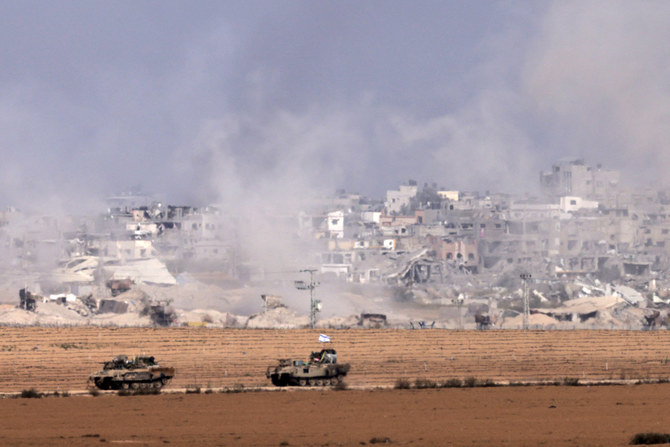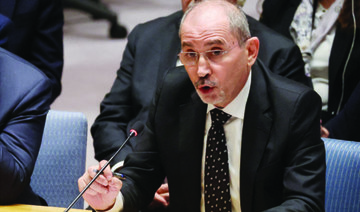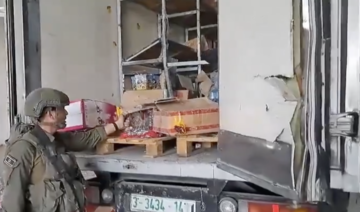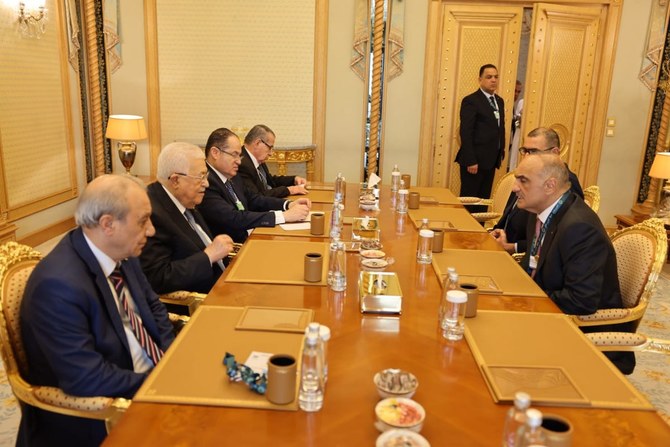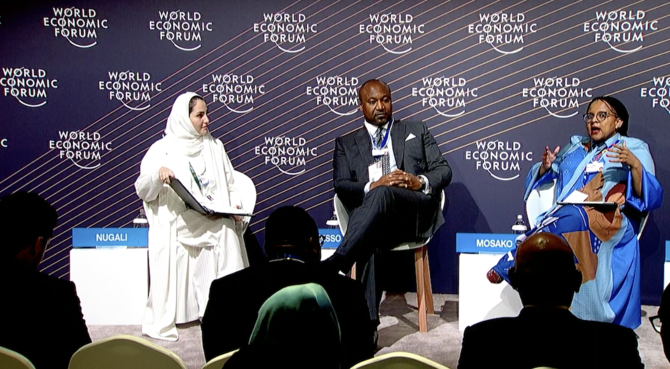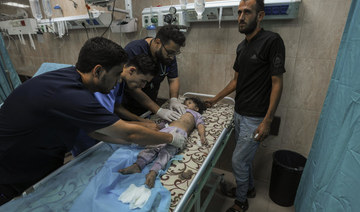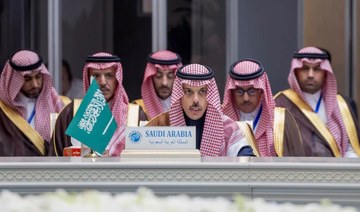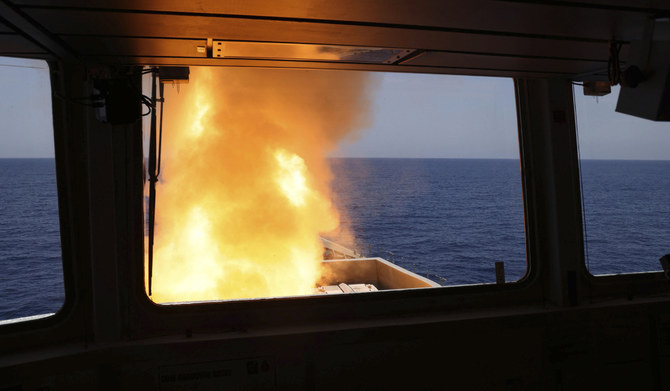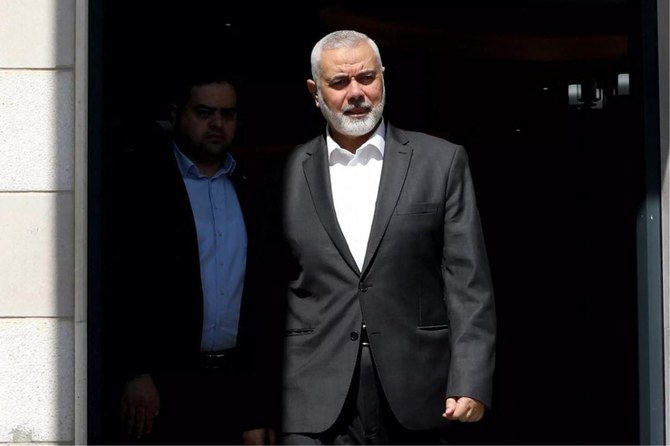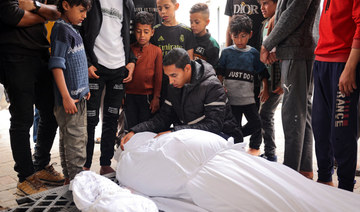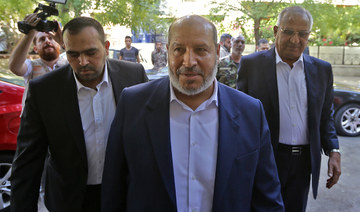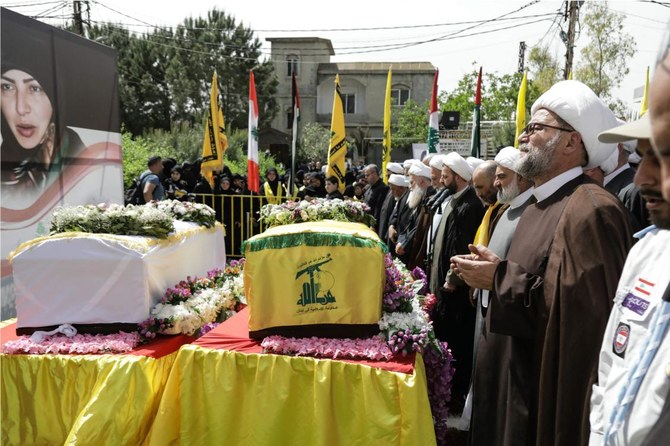LONDON: Israel’s endgame for Gaza appears now firmly set on the enclave’s demilitarization, but some experts say that goal and “total destruction” in this conflict have become indistinguishable.
Even as the fighting between Israel and Hamas militants entered its third month on Dec. 7, precisely who would govern war-devastated Gaza after the dismantling of the Palestinian militant group remained unclear.
Talk about the West Bank-based Palestine government taking charge of postwar Gaza’s governance has been doing the rounds, though Israeli Prime Minister Benjamin Netanyahu has poured cold water on the idea, saying “the Palestinian Authority is not the solution.”

So, what do experts make of Netanyahu’s statement that the Israel Defense Forces will move to demilitarize Gaza, which is still regarded by the UN as occupied territory?
Tobias Borck, a senior research fellow for Middle East security at the Royal United Services Institute, believes the latest remarks represent no change in Israeli policy.
“Those comments were simply meant to justify what the Israeli military was already doing in Gaza. It is little more than a rhetorical switch, a new way of saying ‘destroy Hamas.’ But it is not one offering a clearer, more tangible image of what that looks like,” he told Arab News.
“So, when they say ‘demilitarization,’ this is nothing new, the Israeli argument across almost the entire political spectrum has been that even were there to be an independent Palestinian state, it would have to be demilitarized.”

Israeli soldiers are seen during a ground operation in the Gaza Strip on Nov. 22, 2023. (AP)
On Dec. 6, Netanyahu said the IDF alone would be responsible for demilitarizing Gaza, claiming that international forces would be incapable of achieving success.
Speaking in Hebrew, he said: “Gaza must be demilitarized, only the IDF can take care of this. No international force can. We saw what happened elsewhere when international forces tried this. I am not willing to close my eyes and accept any other arrangement.”
Borck rejected the notion that Netanyahu was warning external actors to stay away, since neighboring Arab states have already called Gaza a mess of Israel’s own making and therefore one it alone would be required to clear up.
As it stands, that “mess” amounts to over 17,700 civilians killed in the two-month assault, a further 7,800 still unaccounted for, more than 46,000 injured, and Gaza’s Hamas-run health authorities alleging that the “war on hospitals and the enclave’s medical facilities is ongoing and does not stop.”
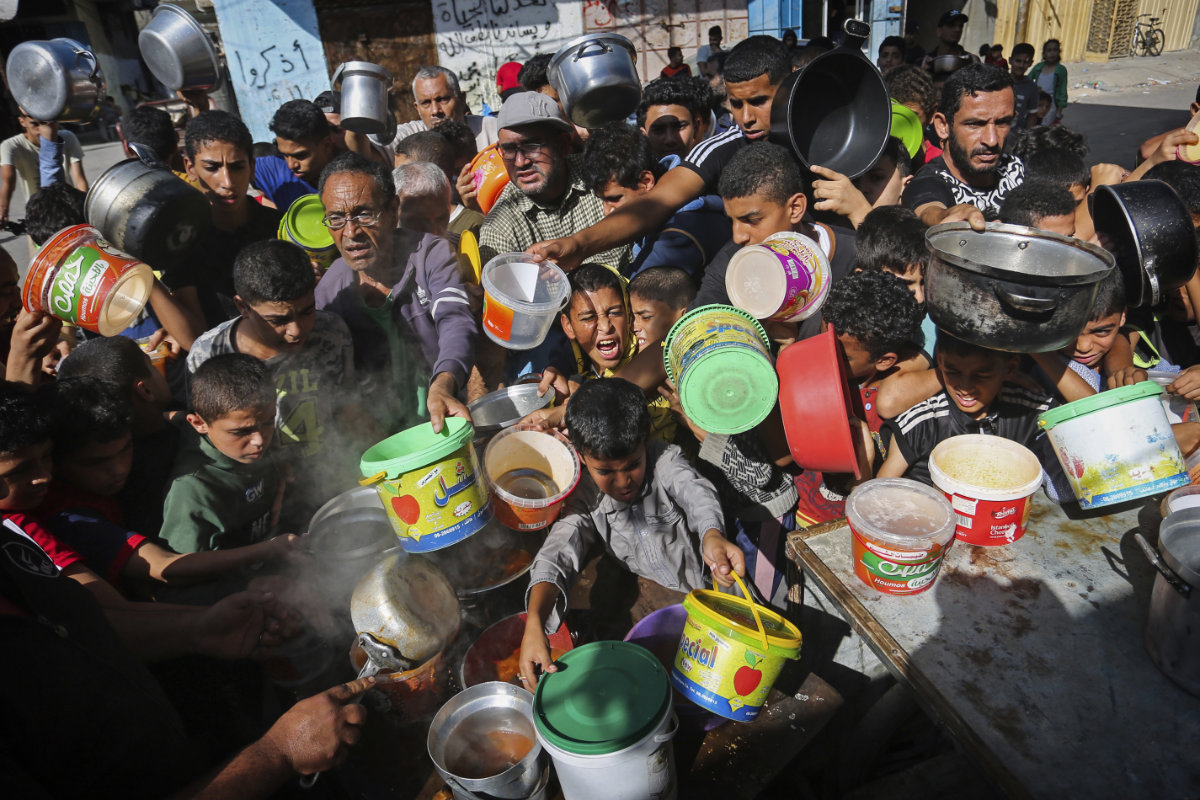
Palestinians crowd together at a food distribution center in Rafah, southern Gaza Strip, on Nov. 8, 2023. (AP)
In the midst of such destruction, Palestinian author and journalist Ramzy Baroud said he saw little likelihood of Israeli success in efforts to demilitarize Gaza, noting that for Netanyahu to achieve this would first require him to have control over it.
“To do so, he would have to defeat the resistance. Even if Netanyahu’s army penetrates parts of Gaza, from the north, center or south, subduing Palestinians in one of the most rebellious regions on earth is not only a difficult task but it is virtually impossible,” he told Arab News.
“This isn’t just about firepower, it is about the collective mood among Gazans, in fact, all Palestinians in the Occupied Territories.”
Opinion
This section contains relevant reference points, placed in (Opinion field)
Similarly skeptical about the prospect of Gaza’s complete demilitarization, Osama Al-Sharif, a Jordanian analyst and political columnist, told Arab News such an outcome would only be possible with Gaza’s total destruction.
“To believe that Israel can disarm Gaza means that it will have to level the entire 365 sq. km area to the ground and evacuate all the population, but the window of opportunity for the military operation is closing soon,” he continued.
“So, both goals will not be achieved unless the US allows for a biblical-like catastrophe where millions of people are driven into the desert under unprecedented and relentless bombing, resulting in tens of thousands of deaths.”
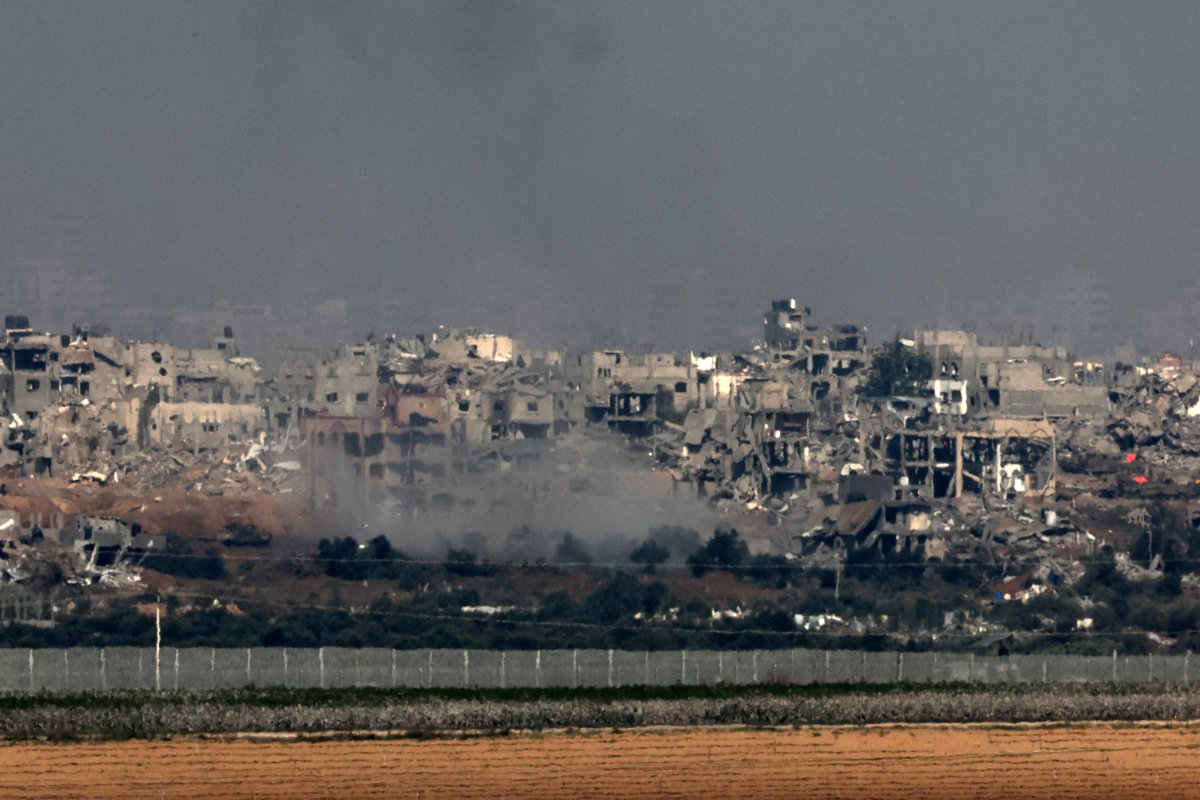
Smoke rises among destroyed buildings in northern Gaza on December 8, 2023, amid continuing battles between Israel and the militant group Hamas. (AFP)
Together with the escalating death toll, by the end of November some 98,000 buildings in Gaza had reportedly been destroyed, with estimates suggesting that 40 percent of the entire enclave was now existent only in a state of rubble.
Pointing at this, Borck stressed that what Al-Sharif defined as the only possible means of demilitarization was already playing out.
“All of this revolves around Israel’s understanding of Hamas, which tells Israel that Hamas is a terrorist military. This is an important distinction from simply being a terrorist organization as it means Hamas is capable of a combined arms maneuver,” he said.
“This is exactly what we saw on Oct. 7, with an air and land attack on Israel. So, it is a not an unjustified view, but it does mean that Hamas is the military presence in Gaza. The IDF is trying to destroy all of Hamas’ military capacity and, once that is achieved, Gaza is demilitarized.”
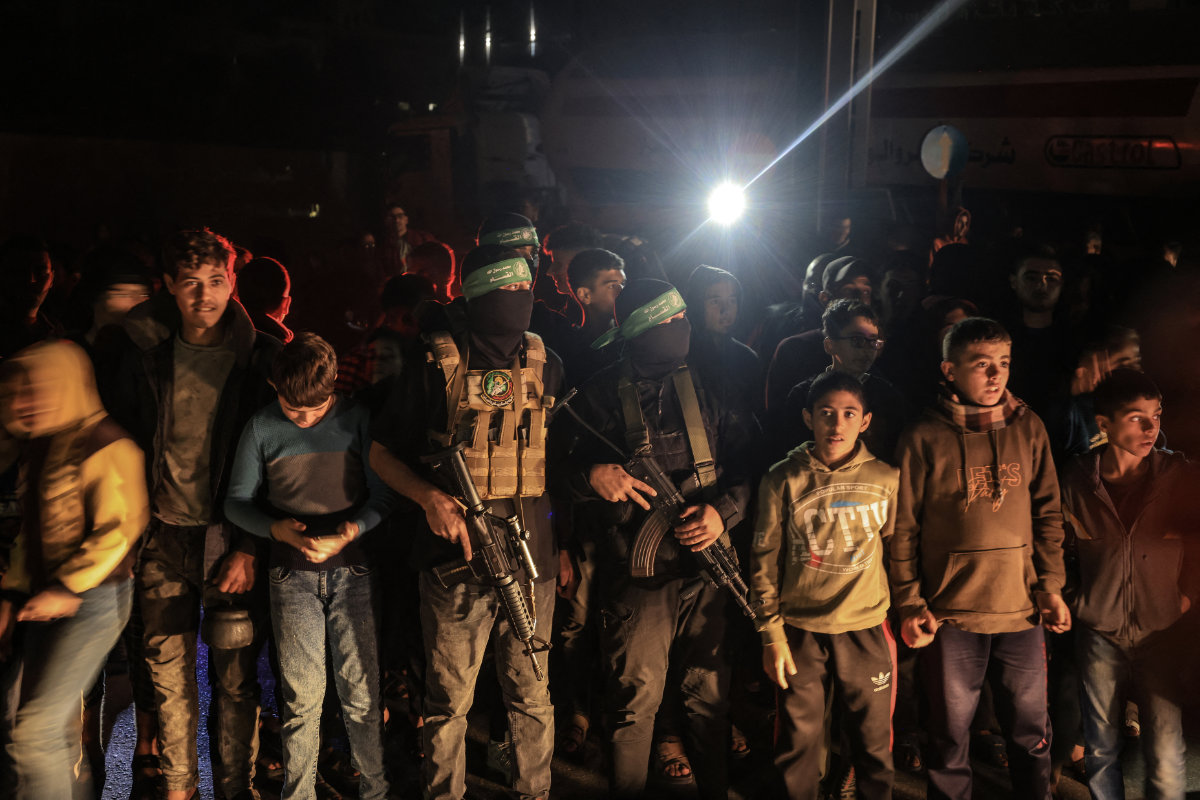
Children stand alongside fighters from the Al-Qassam Brigades in Khan Yunis in the southern Gaza Strip on November 29, 2023, on the 6th day of a truce in battles between Israel and Hamas. (AFP/File)
Were Israel though to follow through and successfully achieve its aim of demilitarization, Borck said that there was only one outcome for Gaza.
“There is a significant collective of Israelis around Netanyahu that see the future of Gaza as a reflection of the West Bank, which means a Palestinian leadership put in place to run schools, hospitals, and to collect garbage, ideally also running domestic policing,” he said.
Bloomberg News reported this week, citing Palestinian Prime Minister Mohammad Shtayyeh, that American officials were working with the PA on a plan to run Gaza after the war is over.
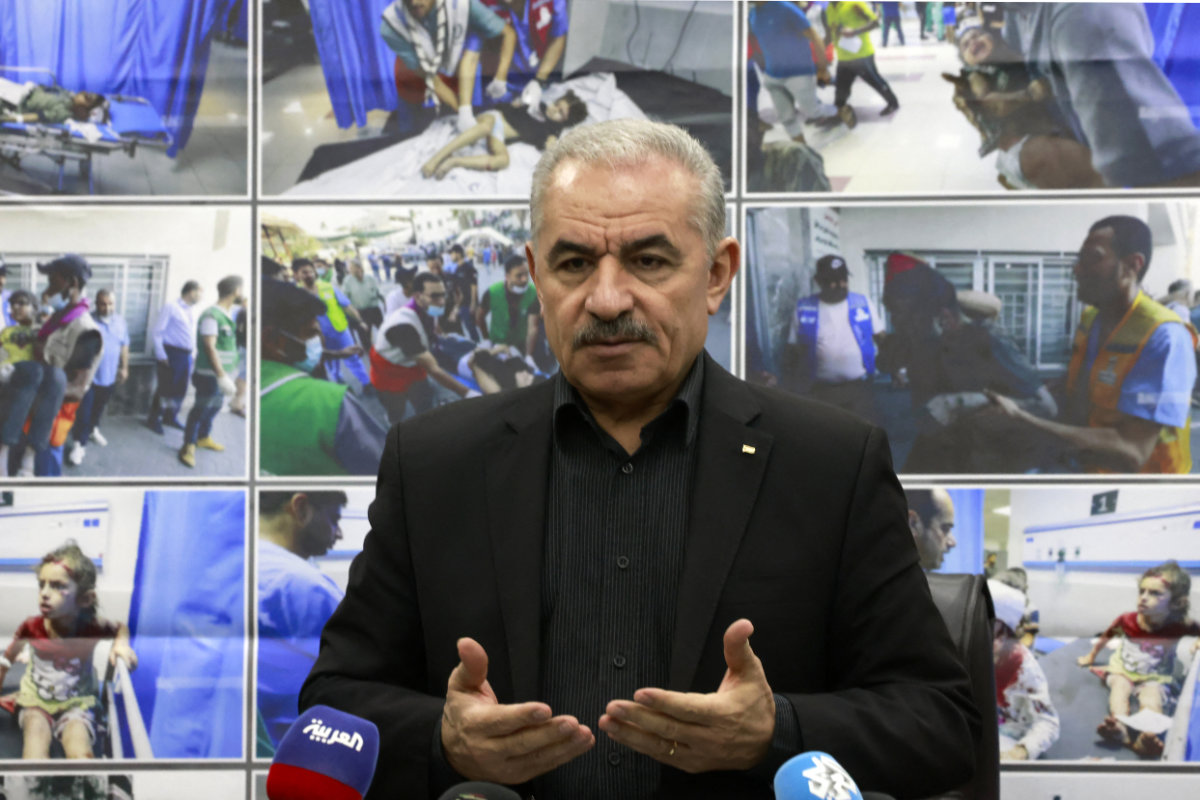
Palestinian Prime Minister Mohammad Shtayyeh and his cabinet pray for the victims killed during the latest Israeli-Palestinian conflict amid the ongoing battles between Israel and the Palestinian Islamist group Hamas. (AFP/File photo)
The preferred outcome of the conflict would be for Hamas to become a junior partner under the Palestinian Liberation Organization, helping to build a new independent state that includes the West Bank, Gaza and East Jerusalem, Ramallah-based Shtayyeh said.
However, according to Borck, a replication of the West Bank governance model in Gaza is far from ideal. “It would be replete with the Israeli-run checkpoints that you find all across the West Bank and would be a total reordering of the way Gazans live,” he said. “Yes, in Gaza there was this force keeping them hemmed in, but within that space they could move with greater freedom than Palestinians in the West Bank.”
Stressing that he did not consider it “a good idea in any shape or form” and rather just what he saw as playing out, Borck said this also likely meant Israel would occupy the least populated part of Gaza “so it could move in and out whenever it perceived a threat.”
Concurring, Al-Sharif said Israel appeared to be working to create a buffer zone in the north while pushing the majority of Gaza’s 2.1 million population to the south and along the border with Egypt, adding “even then, this goal will not be easy to sustain.”
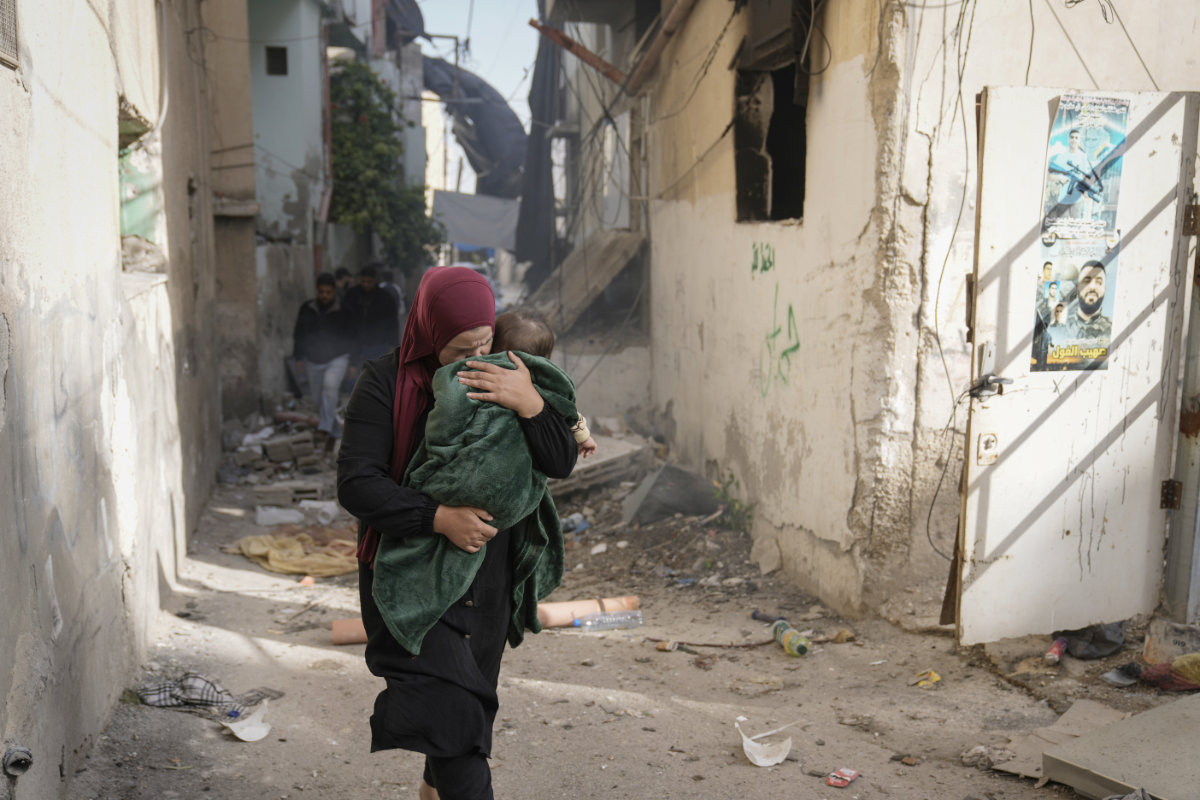
The Israeli military offensive has displaced, left, more than 1.7 million Palestinians, most of them women and children. (AP)
Such a move could put it into the path of a direct confrontation with the Biden administration, which has been clear in its desire for the Palestinian Authority to take control of Gaza when the fighting ends.
Al-Sharif added: “Ramallah has put its own conditions for this to happen; none of which Netanyahu will accept. The US is against any forced transfer of Gazans, the partition of the enclave, or reducing its pre-war area.”
And, despite its continuing veto usage in UN calls for a ceasefire, there is increasing pushback from within the Democratic administration over the way in which the conflict has been unfolding and a seeming retraction of what had been seen as total and unconditional support for Israel’s response to Oct. 7.
On Thursday night, the administration’s top diplomat was seen to have come his closest yet to an outright criticism of the way the Netanyahu government had been handling the war as he sought to re-emphasize the primacy of civilian safety.

Stood alongside UK Foreign Secretary David Cameron, US Secretary of State Anthony Blinken said: “It remains imperative Israel put a premium on civilian protection. And there does remain a gap between ... the intent to protect civilians and the actual results that we’re seeing on the ground.”
Baroud said the Israelis would be wise to learn from “one of Israel's great military generals, the late Prime Minister Ariel Sharon,” who was responsible for the 2005 withdrawal from Gaza after 38 years of occupation.
“Under pressure from the Palestinian resistance that fought the Israeli army, which had occupied Gaza in June 1967, in every neighborhood and every street corner, Israel pulled out,” Baroud said, reiterating his position that demilitarization was an impossible task.
“Back then, the resistance fought with very few tools compared to its current military capabilities, yet Sharon knew he could not win in Gaza, thus ordering his army to retreat, or ‘redeploy,’ under the pressure of relentless resistance, carried out mostly by ordinary people.”






